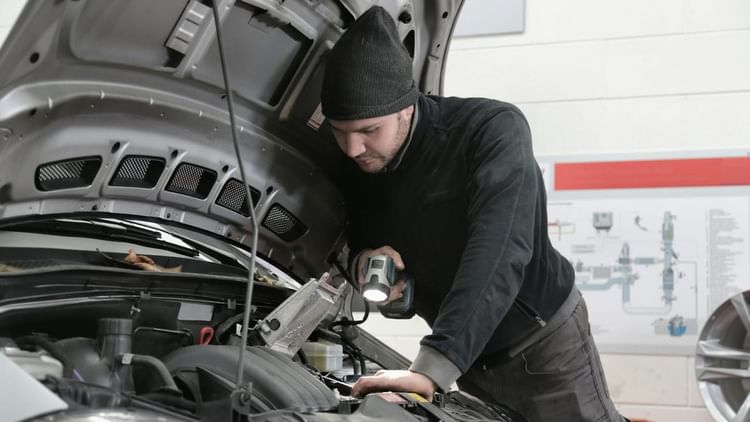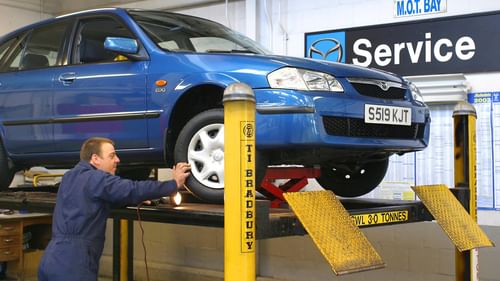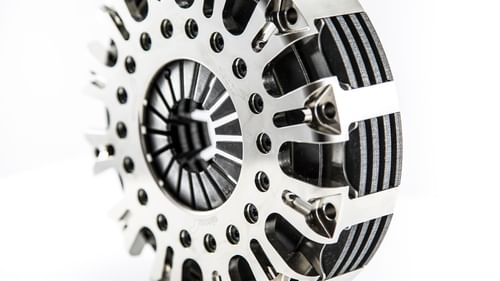How to extend the life of your turbocharger

Turbochargers are a fantastic addition to modern vehicles, providing better fuel efficiency and smoother driving experiences. However, like all car components, they require proper care and attention to ensure they last as long as possible. For the average driver, maintaining a turbocharger doesn't need to be complicated. Here are some straightforward tips to help you extend the lifespan of your turbocharger.
Regular maintenance and servicing
One of the most important aspects of prolonging the life of your turbocharger is regular maintenance. This involves more than just changing your oil regularly, although that is a significant part of the process. Ensuring that your vehicle undergoes scheduled servicing by a professional can catch potential issues early before they become serious problems.
Using the correct oil and changing it at the recommended intervals is vital. The oil lubricates the turbocharger's moving parts, and dirty or degraded oil can cause excessive wear and tear. Always use high-quality oil that meets your vehicle manufacturer's specifications.
Similarly, a clean air filter is essential as it prevents dust and debris from entering the turbocharger. If it becomes clogged, it can restrict airflow and force the turbocharger to work harder, which can lead to damage over time. To avoid this, you should check and replace the air filter as recommended in your vehicle's service manual.
Coolant levels are another important component as turbochargers operate at high temperatures, and adequate cooling is necessary to prevent overheating. Regularly check your vehicle's coolant levels and top up as needed to ensure the turbocharger remains within safe operating temperatures.
By maintaining your turbocharger you will help increase your fuel efficiency and you will also improve your ride experience. Not only this but it reduces the risk of further damage to other car components further down the line.
Gentle driving habits
How you drive can significantly impact the lifespan of your turbocharger. While turbochargers are designed to handle high speeds and loads, everyday driving habits can either help preserve or wear out the turbocharger.
Allowing your engine to warm up when you start driving and giving it time to cool down before turning off the engine is beneficial. When you start your car, give it a minute to idle, especially in cold weather, so the oil can properly circulate. Similarly, before turning off the engine, let it idle for a minute or so. This allows the turbocharger to cool down gradually, preventing thermal stress and potential damage.
You should also try to avoid rapid acceleration and driving at very high engine speeds, particularly when the engine is cold. Gentle acceleration and maintaining moderate speeds can reduce the strain on your turbocharger, increasing its longevity.
Maintaining a steady speed rather than constant stop-and-go driving can also be beneficial. This reduces the frequent heating and cooling cycles that can stress your turbocharger.
Turbo replacements and reconditioning
Despite your best efforts, turbochargers may eventually need to be replaced or reconditioned. Understanding when and how to address these needs can save you time and money in the long run.
Signs of wear: Pay attention to changes in your vehicle's performance, such as unusual noises, loss of power, or excessive smoke from the exhaust. These could indicate that your turbocharger is wearing out and might need attention. Early intervention can often prevent more severe damage.
Reconditioning turbochargers: Reconditioning involves refurbishing the existing turbocharger to restore it to good working condition. This process can be more cost-effective than replacing the entire unit and is a viable option if the turbocharger's housing and major components are still in good shape. Professionals will clean, inspect, and replace any worn parts, ensuring the turbocharger functions like new.
Replacement: In cases where reconditioning isn't feasible, replacing the turbocharger might be necessary. It's crucial to choose a high-quality replacement that matches your vehicle's specifications. An inferior turbocharger can lead to more frequent failures and potentially more costly repairs down the line.
Final thoughts
Taking care of your turbocharger doesn't have to be daunting. Regular maintenance, mindful driving habits, and knowing when to seek professional help are key to ensuring your turbocharger lasts as long as possible. By following these simple tips, you can enjoy the benefits of your turbocharger for many years to come.
Remember, a well-maintained turbocharger not only improves your vehicle's efficiency but also contributes to a smoother, more reliable driving experience.
This post is written in collaboration with Essex Turbos.





